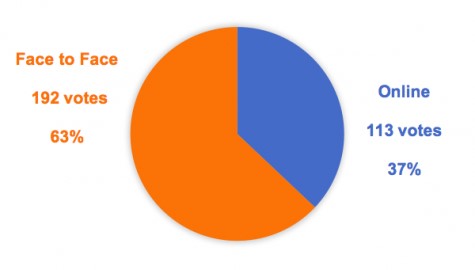What is an online education, and What are the advantages of it?
What is online education?
Online training has many names and includes computer, web, Internet, e-learning, m-learning, and computer-assisted distance learning. Also, online education is electronically assisted learning that relies on the internet by distributing instructional materials as teachers and students interact with each other. There is a myriad of ways that differ from traditional methods in the classroom and on campus. Online education allows students to attend classes whenever they have internet access. This online training can be done through audio, video, text, virtual training environment, and real-time video chat. These online educational environments can provide a more flexible and rich learning experience than traditional classrooms can. Utilizing the potential of online training can be more effective than face-to-face training. So, many people can fit interesting and fun classes to fit their schedule (www.indiaeducation.net, n.d.).
Some advantages of the online education system
- Added flexibility and self-paced learning
Few people can take a vacation from work to participate in postgraduate studies. For those who still must work and return to school, the flexibility of the online program provides an opportunity for personal, professional growth. If people acquire their master’s degree online, they can work on their schedule. This flexibility makes it easier to balance work and study.
- Better time management
Online classes do not have fixed class times, and students can set their schedules flexibly, allowing them to use their time efficiently. One of the things most companies look forward to is efficient time management. Through these habits, students can complete more projects in less time. Online classes allow students to practice managing their time and stay productive each week.
- Demonstrated Self-motivation
Students can motivate themselves by successfully taking online classes. This motivation is the essential factor among the technologies desired by the company. Online courses can prove that students can handle multiple tasks at once and adapt to a changing world.
- Improved virtual communication and collaboration
Smart leaders communicate effectively with others through virtual environments. People can develop important leadership skills by leveraging their expertise and making decisions about how best to communicate by creating effective courses. In online classes, students discuss through virtual chat and collaborate through various software programs. As people progress through these programs, they will make strong, concise, professional arguments. (Miller, 2019)
What are the benefits of learning in the classroom?
Online classes are becoming a trend these days. Although many educational institutions are opting for virtual courses, there are still many institutions that teach in the classroom. So, these classes have advantages over some online courses.
- Promotes collaborative learning
A classroom environment is an essential element that can promote and stimulate student collaboration. Learning through collaboration recognizes how students are thinking and increases students’ self-awareness so that they can learn more easily.
- Enhances critical thinking skills
Face-to-face classes can improve students’ critical thinking skills because classroom instruction requires students to use these skills to formulate opinions and arguments. Therefore, students can gain an opportunity to further develop through their thinking technologies.
- Builds organizational skills
Classroom lessons can teach students to develop organizational skills, starting with the basics. In face-to-face classes, students are responsible for submitting assignments on time and improvising discussions during the course. These situations can make students more organized human beings (Today, 2017).
Student preference between online education and face-to-face classes
Spinnaker surveyed students at the UNF about what they prefer to study online and face-to-face. As shown in the table below, in-person courses received more than half of the votes, but many students are currently taking most of their online classes due to Covid-19 (Senesac, n.d.).

Limitations of online education and offline education
Although the education system has many advantages, both education has some limitations.
Online education
- Online education has its technical challenges. One of the main problems of online education is any connection problems, such as the Internet or electrical connection. These technical challenges can vary by geographic area, and online training can be a significant barrier.
- For teachers, the fatal drawback of online education is managing student interest. When teachers teach students through online classes, it can be difficult to ensure that all students pay attention. Overall, there is less interaction between teachers and students, so it is not easy to convey the teaching content to the class.
- Another downside of taking online classes is that students spend a lot of time in front of the computer. This habit can harm their health and worsen their eye condition by looking at the monitor for a longer time than usual.
- Unlike face-to-face classes, online education makes it difficult for students to interact with each other. The ability for students to communicate and share information through face-to-face classes assists them in developing a lot of skills, such as leadership and teamwork. However, online training can create significant experiential losses due to the lack of contact with peers.
Offline education
- It is undeniable that students cannot beat fatigue and boredom by investing their entire day in school. Compared to online education, this education provides more time flexibility, so there may be disadvantages in terms of time. Students save time going to and from school to enjoy their hobbies and leisure time. It also enables students to keep and use more energy in online classes.
- Face-to-face classes require a completely different type of curriculum. This uses more resources, which can be a disadvantage compared to online education, which only spends money on the internet and devices in addition to fixed costs.
- Face-to-face lessons rely only on memory when teaching, and it is impossible to repeat the lessons. As a result, it can be difficult for students to review. Also, there are limitations and mistakes because they must study based on the notes they took in class (Esther Bilbao, 2021).
How to overcome these limitations
- Create a classroom connection in online learning
People must passionately realize the question-and-answer and discussion that mostly occurs in offline classes through online classes. In addition, even after the online course is over, students can personally contact us through SNS and ask questions about the class to overcome the limitations.
- Having enough patience
If students are experiencing technical difficulties while taking online classes, it is vital to be patient. So, choosing an online course that does not require high-speed Internet or large internal memory can be an excellent option. These online courses should not be too difficult to load and stream. Students can also choose systems that do not require a separate download of documentation or learning materials (Skill Success Blog, 2020).
Conclusion
Many students are currently unable to attend face-to-face courses due to Covid-19. However, because of the advantages of offline types and online classes, their preferences are all different. Both classes have their strengths and weaknesses, so people cannot be sure which one is better, but the most important thing is to find a style that suits their lifestyle and situation. This requires a lot of effort from the government and educational institutions. As a result, it takes everyone’s hard work and passion to create better education.
References
www.indiaeducation.net. (n.d.). What is online education | Definition of Online education is electronically supported learning that relies on the Internet for teacher/student interaction and the distribution of class materials. [online] Available at: https://www.indiaeducation.net/online-education/articles/what-is-online-education.html.
Miller, K. (2019). The advantages of online courses: 7 great things of online degrees. [online] Northeastern University Graduate Programs. Available at: https://www.northeastern.edu/graduate/blog/benefits-of-online-learning/.
Today, I. (2017). 7 ways classroom teaching is better than online education. [online] India Today. Available at: https://www.indiatoday.in/education-today/featurephilia/story/classroom-teaching-better-than-online-education-984387-2017-06-23.
Senesac, S. (n.d.). Online vs. face-to-face courses: Which do UNF students prefer? [online] UNF Spinnaker. Available at: https://unfspinnaker.com/89946/news/university/online-vs-face-to-face-courses-which-do-unf-students-prefer/ [Accessed 9 Jan. 2022].
Esther Bilbao, B.M.C. in P. (2021). Online vs Offline Education; Advantages and Disadvantages. [online] Best BBA, BCA, Hotel Management, Design and Media College in Siliguri. Available at: https://inspiria.edu.in/online-vs-offline-education-advantages-and-disadvantages/.
Skill Success Blog. (2020). The Disadvantages of Online Learning and How You Can Overcome It. [online] Available at: https://blog.skillsuccess.com/the-disadvantages-of-online-learning-and-how-you-can-overcome-it/.
